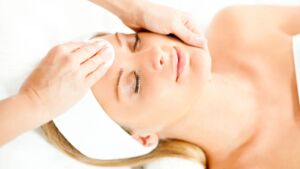Retinoids for Acne
If you have moderate to severe acne that hasn’t gotten better with other treatments, a retinoid may help. When spread on the skin, retinoids can unclog pores, allowing other medicated creams and gels to work better. They also reduce acne outbreaks by preventing dead cells from clogging pores. By clearing acne and reducing outbreaks, they may also reduce the formation of acne scars.
Retinoid pills treat oil production, bacteria that cause acne, and inflammation.
How to use: Smooth a pea-sized amount of retinoid cream over the skin once a day 20 to 30 minutes after washing your face.
What else you need to know: When you first use retinoids, you may notice redness, peeling of your skin, or worsening of your acne. You can minimize this by using the product every other day until your body gets used to it, or mix it with moisturizer.
Retinoids for Wrinkles
Tretinoin was the first retinoid approved by the FDA to treat wrinkles. This prescription retinoid works by increasing the making of new collagen. It also stimulates new blood vessels in the skin, giving skin a rosy appearance, fading age spots, and reducing precancerous skin spots called actinic keratosis. Tretinoin also may help prevent more serious effects of ultraviolet radiation.
Over-the-counter retinoids may not work as well as tretinoin in reducing wrinkles, but they can improve the appearance of sun-damaged skin. Using them along with products that have alpha-hydroxy acids may provide even more skin-smoothing effects.
How to use: Apply to your face, neck, chest, hands, and forearms at least twice a week.
What else you need to know: It takes 3 to 6 months of regular use before improvements in wrinkles are seen, with the best results happening after 6 to 12 months.
Retinoids for Psoriasis
Retinoids can slow the growth of skin cells in patients with psoriasis. Usually, you apply a small dab to each sore once a day before bed. A retinoid cream or gel is often combined with steroid treatment.

